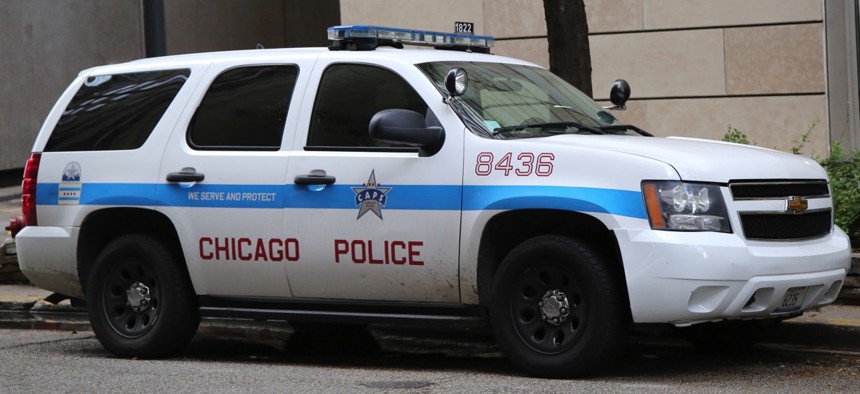Can 1,000 More Officers Solve Chicago's Homicide Problem?

This is the city’s largest police-hiring surge since the 1980s.
The Chicago Police Department plans to hire nearly 1,000 officers to help reduce crime after the city saw a 50 percent spike in homicides, according to several early reports. Police Superintendent Eddie Johnson is expected to make the official announcement Wednesday afternoon.
Last month, Chicago had 90 homicides, the highest monthly total in two decades. The city has had 500 homicides this year—higher than all of 2015, and is on pace to break 600. The police force has 12,000 officers and the addition of nearly 1,000 more would be the greatest police-hiring surge since the 1980s.
The Chicago Sun Times has a breakdown of how quickly new recruits are expected, as well as their cost:
Over the next two years, the police department will add 516 patrol officers, 92 field-training officers, 112 sergeants, 50 lieutenants and 200 detectives.
The first-year cost will be $138,000 per officer including salary, benefits and supervision. So the 970 additional officers will carry a price tag of almost $134 million.
Police Supt. Eddie Johnson said he has no idea how Emanuel plans to pay for the extra cops.
Although the hiring surge is significant, it essentially returns the size of the police force to its strength in 2011, when Mayor Rahm Emanuel took office. Since then police retirements have outpaced hires, and Emanuel has shored up that disparity by offering massive overtime. But critics called this approach unsustainable because of the high likelihood of officer burnout. Emanuel campaigned five years ago on the promise he’d hire an extra 1,000 officers, but instead he disbanded special units and transferred officers to beat jobs, according to the Sun Times. The paper pointed out that Emanuel has already raised property taxes by $838 million for police, fire, and teachers pensions. But Emanuel’s office did not say early Wednesday how he planned to pay the more than $130 million price tag for the new officers.
Police recruits typically spend six months training at the academy, then work on the streets for a one-year probationary period. But superintendent Johnson told the Sun Times he’d started drafting plans to quicken the training pace.
Not everyone was enthused with the idea of reducing homicides by increasing the size of the city’s police force. Alderman Anthony Beale and Alderwoman Pat Dowell, who both represent Chicago’s South Side, told the Associated Press policing has to be viewed as only part of the problem. They asked that resources also go toward education and creating jobs.
J. Weston Phippen is a senior associate editor at The Atlantic, where this article was originally published.
NEXT STORY: Fighting the Opioid Crisis: An Ecosystem Approach to This Wicked Problem





